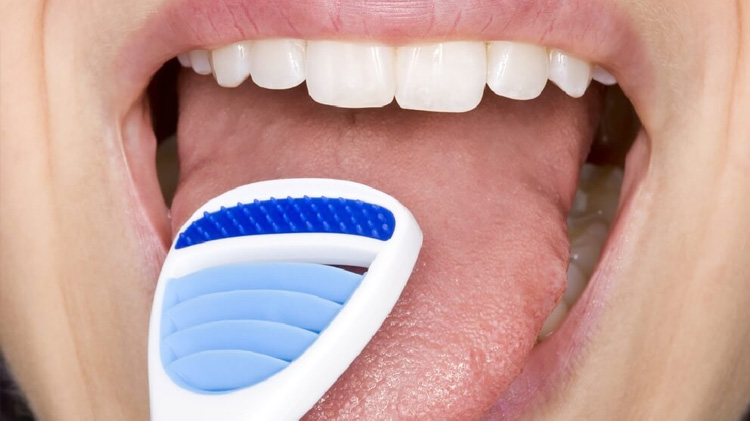You might not know this, but your tongue can tell quite a lot about the state of your health. There are several different types of signs your tongue can show that all indicate different conditions, so the next time you’re brushing your teeth, remember to open your mouth in front of the mirror, stick your tongue out and carefully look at it. You might find something surprising!
But first, let us remember what a healthy tongue is supposed to look like. Your tongue should be pink and covered in small papillae, also called nodules. Any other color, texture or painful sensations, should be cause for concern. Let’s look at the list of potential issues and see if you should see a medical professional.
White Tongue
If your tongue has white spots or a layer of a white coating, this could mean that you have oral thrush, which is a yeast infection. The infection presents as white patches that have a similar consistency to cottage cheese. This infection often appears in people with weak immune system, such as infants or the elderly as well as those who are suffering from immune diseases or take certain kinds of steroids or antibiotics.
Red Tongue
There are four possibilities of what a red tongue could indicate. It could be a vitamin deficiency, for example folic acid or B-12. A blood test will show if this is the case.
Another possible condition that results in a red tongue is Kawasaki disease, that happens to children under 5 years old and occurs together with a high fever.
Scarlet fever can make your tongue look like a strawberry. It is also often accompanied by a fever and is treated by antibiotics. If you have those symptoms, please go see a doctor to get your prescription.
Geographic tongue is a condition that makes your tongue look like a map – with reddish spots with white borders here and there. The condition is caused by vitamin deficiencies but is harmless in on itself. There is no health to your health or possible complications.
Black Tongue
This condition is also described as “hairy tongue”. As the nodules on our tongues never stop growing – similar to hair and nails, they can sometimes get overgrown. This creates a perfect environment for bacteria growth, which can be dark in color, painting the tongue black. This is a rare condition and isn’t dangerous. Usually, the simple solution to this is to practice good dental hygiene, but people with weakened immune systems can also be vulnerable to developing a black tongue. This includes those going through a chemotherapy, taking antibiotics or those suffering from diabetes.
Tongue Ulcers or Bumps
This could be caused by several things, one of which is excessive smoking. It irritates the skin on the surface of one’s tongue, causing discomfort. Another reason is mouth ulcers or canker sores. Most people will experience these sooner or later. We don’t know why the occur, but stress is considered to be one of the reasons. This issue will resolve itself within a week or two if left alone.
Bumps can be a result of physical trauma after you burn your tongue with a very hot coffee or bite it by accident. If you have a tendency to grind your teeth, it can also damage your tongue on the sides. This causes discomfort but will also resolve itself eventually. And lastly, one of the reasons for bumps on one’s tongue is oral cancer. If you’ve noticed that its been weeks, but the soreness or ulcers haven’t resolved themselves yet, get your tongue checked out by a doctor. Oral cancer might not cause any pain in the early stages, so if you have reason to suspect that you have it, don’t delay a visit to a doctor for too long.
Now that you know all about potential tongue conditions, you’ll know what to look out for when you check it. Simply add one more thing to your daily hygiene routine to be able to catch an infection early or avoid them altogether. Remember, if bumps, discoloration or pain don’t resolve themselves within a week or two, you should get your tongue looked at by a medical professional.

Call Us Today
Comfort Care Family Dental is your local Naperville dentist “near me” that strives to provide the most comforting experience, especially for those that have families. Speak with a Comfort Care Patient Care specialist with no obligation at 630-369-0111


